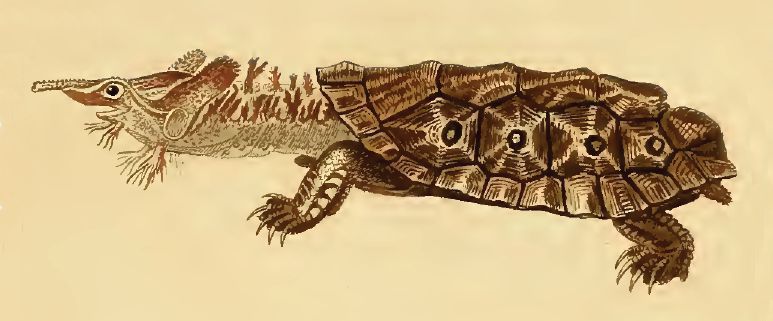|
| Query: turtle | Result: 1233rd of 1589 | |
mata-mata, matamata (Chelus fimbriata)
| Subject: | mata-mata, matamata (Chelus fimbriata)
| | Poster: | Wiki Photos (---@---.---)
| |

| Resolution: 773x321
File Size: 54904 Bytes
Date: 2012:03:18 20:55:50
Upload Date: 2017:07:19 14:10:11
|
English: Plate 21 from "Erpétologie générale, ou, Histoire naturelle complète des reptiles" / by A.M.C. Duméril and G. Bibron.
Date 1854
Source http://www.biodiversitylibrary.org/bibliography/45973
Author Duméril, C. (Constant Duméril), 1774-1860, Spencer Fullerton Baird, 1823-1887, Gabriel Bibron, 1806-1848. Auguste Henri André Duméril, 1812-1870.
Source: https://commons.wikimedia.org/wiki/File:Chelus_fimbriata00.jpg
The mata mata, mata-mata, or matamata (Chelus fimbriata) is a freshwater turtle found in South America, primarily in the Amazon and Orinoco basins. It is the only extant species in the genus Chelus. |
^o^
Animal Pictures Archive for smart phones
^o^
|
|

